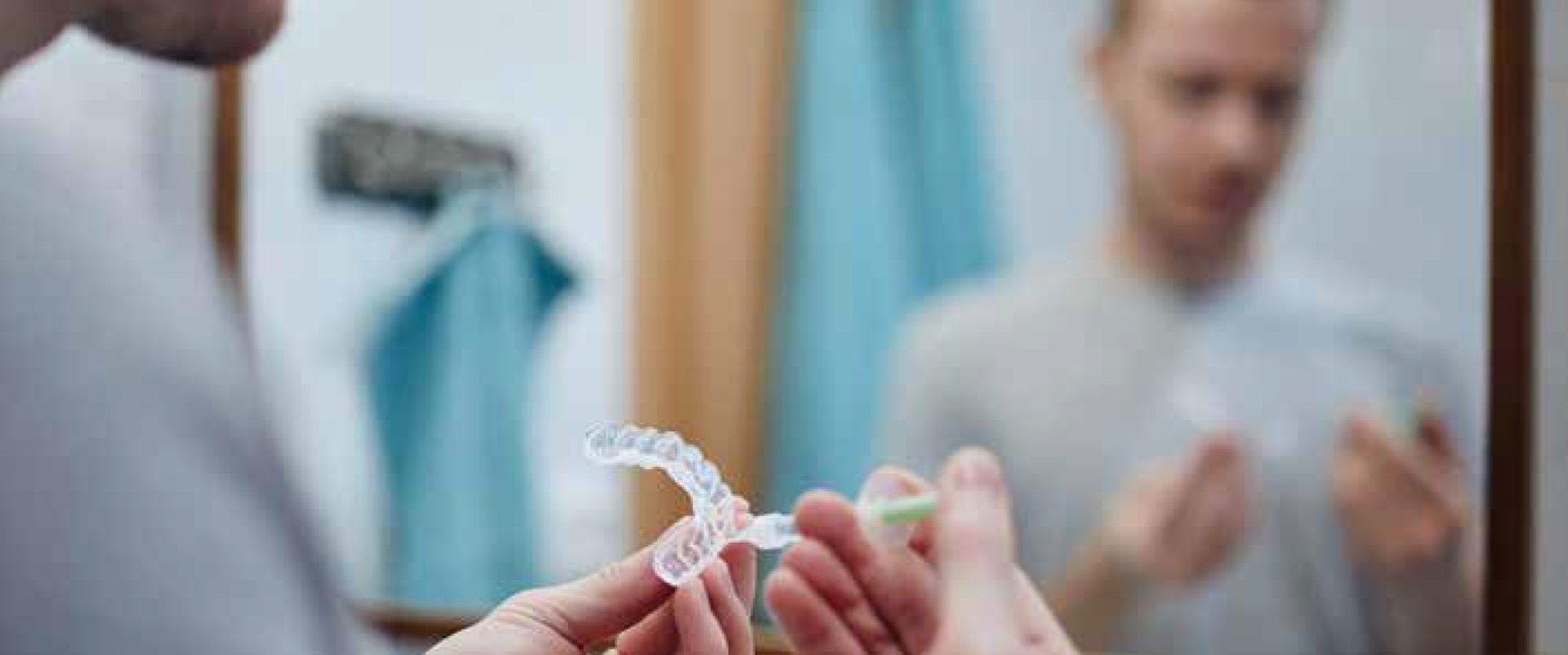Jayne Cahill considers why it’s as important as ever to keep patients safe from the illegal tooth whitening kits available online.
A recent investigation by the consumer group Which? into the safety of some home teeth whitening kits sold online has once again thrown a spotlight on their dangers.
The group tested 36 home teeth whitening kits available online in the UK, including whitening strips, gel-filled syringes and pens with brush tips, and 21 of these exceeded the legal limit for the percentage of hydrogen peroxide permitted by UK law.
Whitening products sold over the counter or online in the UK should contain no more than 0.1 per cent hydrogen peroxide, yet six of the 36 tested contained over 10 per cent, 100 times over the legal limit and capable of burning gums and causing tooth loss.
As BDA board member Paul Woodhouse commented, “Hydrogen peroxide is a seriously strong chemical and not to be messed with. If you destroy gum tissue, you are never going to get it back… If it penetrates the surface of your tooth, which is likely, it’s probably going to lead to the death of that tooth.”
Products containing over 0.1 per cent can legally only be sold in the UK to a dentist registered with the GDC. Since October 31, 2012, the maximum legally permitted level of hydrogen peroxide contained in, or effectively released from, tooth whitening products for application by dentists in EU countries has been six per cent.
In addition, the GDC’s position on tooth whitening is that products releasing between 0.1 per cent and six per cent hydrogen peroxide should not be used in any person under the age of 18, “…except where such use is intended wholly for the purpose of preventing disease.” However, there is nothing to stop those under 18 ordering and self-administering potentially harmful whitening products.
Sue Davis, head of consumer protection and food policy at Which?, believes that self-regulation is not working, and is leaving people exposed to a flood of unsafe products online. Since the publication of the report, all of the offending products have been removed from online sale by retail outlets. However, Sue explains, “It is absolutely crucial that online marketplaces are given greater legal responsibility for the safety of products sold on their sites, so that shoppers are far better protected from dangerous and illegal items.”
In the meantime, while it remains remarkably easy for unsuspecting customers to buy illegal and dangerous whitening products online, there’s a clear education gap which dentists are uniquely placed to address.
A safer alternative
Whilst ordering home whitening kits over the internet is convenient and often seen as a cheaper option, patients are not always aware that there are other clinically proven and cost-effecive alternatives available which – most importantly – will be delivered under the safe care of their dentist.
As Paul Woodhouse said, “Dentists are trained in the usage of hydrogen peroxide and they also know what whitening products are effective to use and safe for teeth and gums.”
The most versatile whitening systems have a wide variety of options to choose from, designed to suit varying lifestyles. The most effective, fast-acting treatments can be administered by a dentist – or other suitably trained dental professionals on the prescription of a dentist – in the dental chair in under an hour, ideal for patients looking for fast results.
Dentist-led home whitening
Many patients prefer to self-administer their whitening treatment at home either during the day or overnight. The treatment is applied for short periods, can be fitted into any routine and come in a variety of strengths to suit the different needs of each patient.
Night-time treatments are often compounds, such as carbamide peroxide, which contain hydrogen peroxide that’s released over an extended period to allow for longer periods of wear. Whilst the maximum permitted level of hydrogen peroxide is six per cent, the maximum level of carbamide peroxide is 16 per cent.
Patients must be shown by a qualified dental professional how to administer the whitening treatments and then monitored to check progress. In this way patients can be sure that they will not be damaging their teeth and that any sensitivity that may result from the whitening process can be managed effectively.
Some whitening products have been formulated to decrease the amount of sensitivity experienced, with ingredients such as fluoride which is released to help remineralise the tooth surface and a high water content which reduces dehydration. Some systems also include a soothing gel, such as SDI’s Pola Soothe, a sustained release gel containing fluoride and potassium nitrate, which desensitises the nerves in the tooth pulp without interfering with the whitening process.
Spreading the word
The easiest way for dental practices to raise awareness of the whitening treatments they offer is to use simple marketing tools such as in-practice promotional materials. Posters displayed within the practice and patient information leaflets available in reception will let every patient who visits know that they can access safe and effective whitening from their own dentist.
Adding details about the whitening treatments available to the practice website and informing patients via emails or social media posts will also spread the word and potentially persuade any patients who are contemplating an online purchase to go to their own dentist instead.
The versatility and choice of today’s advanced tooth whitening systems allow dentists to offer their patients a convenient option that will suit them and deliver effective and safe results. This in turn gives them a real alternative to risking the health of their teeth and gums with illegal home whitening kits purchased online.
Jayne Cahill is the UK sales manager at SDI.



